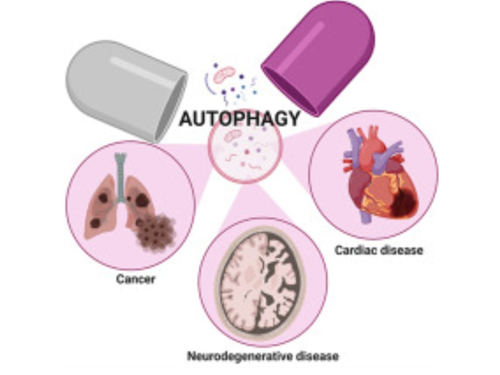
Exploring the Current Status:
Autophagy, a cellular process responsible for the degradation and recycling of damaged or unnecessary cellular components, has garnered considerable attention in cancer research. Scientists have been studying the complex relationship between autophagy and cancer, as it plays a dual role in both tumor suppression and tumor promotion. This article aims to provide an overview of the current status of the concept of autophagy in cancer and its implications for understanding and treating the disease.
Autophagy's Role in Cancer:
Autophagy, also known as "self-eating," is a tightly regulated mechanism that maintains cellular homeostasis and promotes survival during periods of stress, such as nutrient deprivation or hypoxia. In the context of cancer, autophagy can act as a double-edged sword; it can either inhibit or facilitate tumor growth, depending on various factors.
Tumor Suppression:
Autophagy acts as a tumor suppressor mechanism by removing damaged proteins and organelles, preventing their accumulation and the subsequent formation of cancerous cells. It helps maintain genomic stability, regulates cellular metabolism, and enhances immune surveillance against cancer cells. Studies have shown that defects in autophagy-related genes can lead to an increased risk of cancer development.
Tumor Promotion:
Conversely, autophagy can also support tumor growth by providing essential nutrients to cancer cells in the nutrient-deprived tumor microenvironment. It enables tumor cells to adapt and survive under stressful conditions, fueling their proliferation and drug resistance. Additionally, autophagy can play a role in supporting the survival of dormant cancer cells during metastasis, allowing them to re-establish tumors in distant organs.
Targeting Autophagy in Cancer Therapy:
The intricate relationship between autophagy and cancer has prompted researchers to explore its potential as a therapeutic target. Developing strategies to regulate autophagy levels in cancer cells could lead to improved treatment outcomes. Several pharmacological agents, known as autophagy modulators, have been studied to harness the potential of autophagy manipulation.
In some cases, inhibiting autophagy in cancer cells using specific inhibitors alongside conventional therapies, such as chemotherapy or radiation, has shown promising results. Alternatively, activating autophagy in other instances can sensitize cancer cells to treatment, promoting their death.
Future Directions and Challenges:
Despite substantial progress in understanding autophagy's role in cancer, many questions remain unanswered. Researchers strive to identify specific molecular targets within the autophagy pathway that can be therapeutically exploited. Additionally, precisely determining the contextual role of autophagy in different cancer types and stages is of utmost importance to tailor treatment strategies effectively.
Furthermore, the complex interplay between autophagy, cancer cells, and the tumor microenvironment warrants further investigation. Understanding the impact of autophagy on immune responses and its connection to drug resistance mechanisms is vital for developing more effective therapeutic interventions.
Conclusion:
Autophagy's role in cancer is complex, with both tumor-suppressive and tumor-promoting effects. The current knowledge suggests that targeting autophagy may hold significant potential in cancer therapy, either by inhibiting or activating the process. However, more research is required to precisely identify the context-dependent role of autophagy in various cancer types and to develop targeted therapies that effectively exploit this mechanism. With ongoing advancements, autophagy modulation may offer novel opportunities to improve cancer treatment outcomes in the future.